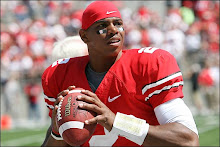
I’ll bet our Founding Fathers never expected this. A black man, a man they counted as three-fifths of a person in the Constitution, is on the verge of becoming President. It’s been 232 years since the Constitution was written, and it has taken that long for an African-American to come this close to leading our country. Barack Obama is a longtime advocate for equal opportunities for blacks in America, as shown in a recently surfaced NPR interview! from 2001. The interview took place with Chicago Public Radio when Obama was at the University of Chicago law school as a part-time professor of Constitutional Law. During the interview, he talked about his view of the Constitution as a “charter of negative liberties,” stressing the fact that blacks were not counted as full citizens and slavery was not outlawed in the famous document. Barack went on to say that, although great strides have been made in the civil rights movement since 1789, blacks are still at a disadvantage in this country. “If you look at the victories and failures of the civil rights movement….” he said, “I think where it succeeded was to invest formal rights in previously dispossessed people, so that now I would have the right to vote. I would now be able to sit at the lunch counter and order as long as I could pay for it I’d be okay.” He goes on to say, however, that blacks still have a long way to go. The Constitution, in his view, never went as far as to address “political and economic justice in society,” which seems to mean the poverty so many blacks still face today. Because of that, Obama described the Constitution as ”…a charter of negative liberties. Says what the Federal government can’t do to you, but doesn’t say what the Federal government must do on your behalf, and that hasn’t shifted….”
The interesting thing is, this Obama interview has set off a firestorm among critics like Rush Limbaugh. He accuses Obama, when he talks about “a charter of negative liberties” of wanting to undo the limits the Constitution places on the federal government so he can create a socialistic society where government is all-powerful, and wealth is evenly spread among everyone.
But I’ve been thinking, as we talked about the Constitution in class this week: is that what Obama---one of those three-fifth’s guys who had to earn his rights the hard way--really meant? If you listen to Limbaugh, Obama wants our society to become like the world Kurt Vonnegut described in “Harrison Bergeron:” a socialist country where free enterprise is obsolete and everyone is forced to be equal in every way.
But is this really what Obama wants? I think you have to look at his words from the viewpoint of someone whose race has struggled with limitations and constraints the rest of us can only imagine. You really have to go back to the Founding Fathers to remember how tenuous the black population’s rights were—and what a struggle lay ahead of them. As Cullen, in The American Dream, explains, “…our founders were willing to use democratic means, like elections, to realize their republican ends—but only among people they felt confident were capable of exercising such morality and wisdom…it was clear to them that many of the people who lived in the United States—slaves, women, Indians—lacked this virtue, and that is why they were excluded from what became a democratic republic…Whether or not others, like slaves, were also created equal…was a matter of some uncertainty (and less debate.) It was the obvious common ground, in any case, not the ambiguity of those on the boundaries, that was their focus.”
Maybe guys like Limbaugh need to think about the struggle of people “on the boundaries” like Obama who have tried to make the ambiguities of the Constitution more clear. Maybe it’s his job as the potential President of the United States to remember the struggles his race has gone through since the Constitution was written. Maybe that’s the legacy of a three-fifths guy.




